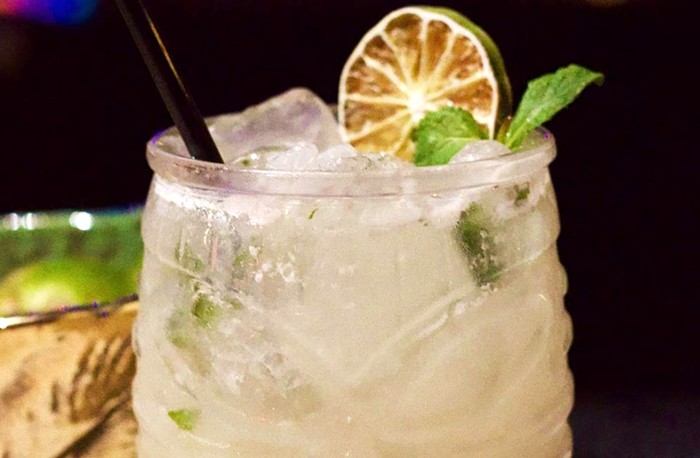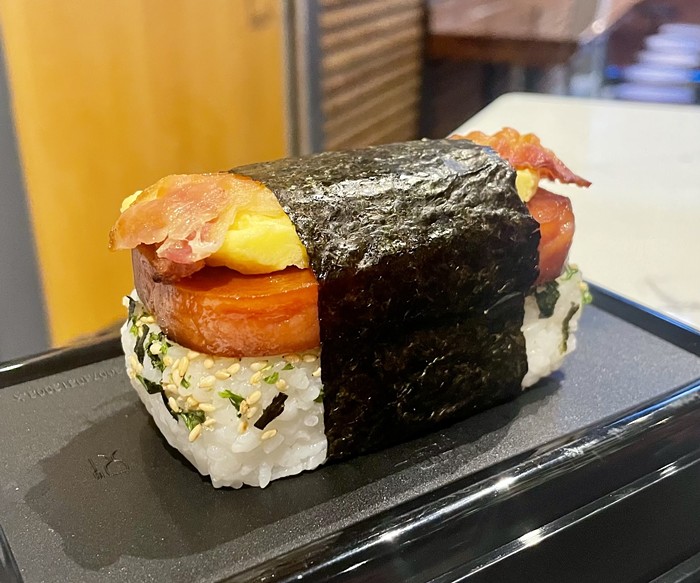1. "At least it's not human meat!"
Cannibalism has served to amplify the occurrence of spongiform diseases in cattle, via feed filled with bovine byproducts (a practice that has been banned in the U.S. since 1997). It also served to spread kuru, a similar brain-wasting disease, in humans in New Guinea where certain cannibalistic funeral rites were practiced. So while eating beef may seem slightly more risky today than it did yesterday, it's got to be safer than eating humans.
2. "At least it's not brain fritters."
The variety-meat craze that's swept restaurants of a certain rustic bent over the last few years landed liver, sweetbread, cheeks, and sometimes kidneys on the menu, but only the most daring chefs served up brains. Besides the gross-out factor, it's silly to eat brains in this day and age, as that's where prions, those death-dealing proteins, lurk in diseased animals. Says Dr. Val Hillers, consumer food safety educator at Washington State University, "The best evidence is that it is transmitted by the nervous tissue; it's connected to brain and spinal tissue." Prions may be found in non-neural tissue, but the concentration is vastly smaller in muscle, AKA steak.
3. "At least it's not bologna...."
Or hot dogs or salami or sausages. When Upton Sinclair wrote The Jungle about American meat-processing plants, he warned of the stray fingers and vermin that fell into the industrial chopper. These days, it's diseased spinal or brain tissue that might inadvertently make it into your wiener. "It's very low risk, but [minced meats like sausages] may contain some protein that transmits the disease," says Hillers. Joel Heusby, a farmer who raises grass-fed cows, pigs, lambs, and chickens, also adds that "hand boning meat to make ground beef" is safer.
4. "At least it's not a T-bone steak..."
This is something we haven't heard much about in the last week, but when the British government admitted the link between BSE and human spongiform disease, it banned beef sold on the bone. So the very lowest risk for beef eaters would come, as Hillers says, "from boneless muscle cuts." Remember that steaks come from muscles that run along a cow's back, so the bones in cuts like porterhouse and T-bone are vertebrae, something that I'd avoid these days.
5. "It's pasture-raised."
Ruminants (like cows) evolved to eat grass, and that's what they did until ranchers started plumping up cattle with other feeds--many of which contain, um, "animal byproducts." Officially cows can't be fed to cows anymore, which is nice, but pasture-raised cows have also lived lives that are a little less grim than their factory-raised cousins. They've also only eaten grass--making the risk of mad cow whisper-thin. Thundering Hooves (thunderinghooves.net) and Ninety Farms (ninetyfarms.com) are two Washington farms that sell meat raised only on grass, but you'll need to wait until summer for their products. A bigger Washington operation, Misty Isle Farms (mistyislefarms.com), also raises its cows on grass, then switches them to an all-vegetarian grain diet. Organic beef has been fed an all-vegetarian diet, too. Beef from Argentina, New Zealand, and Australia is also likely to be entirely pasture-raised.
6. "It was a young cow."
Misty Isles uses a slaughtering plant that won't slaughter animals more than 30 months old because older cattle are more likely to have been around for the good old days of feed with cow byproduct in it.
7. "At least it's not deer."
I spoke about BSE with Robert LaBudde, a scientist and consultant to the meat industry. While he concedes BSE has been a big problem in Europe, he expressed more concern for the U.S. about Chronic Wasting Disease, a spongiform disease in elk and deer that's spreading throughout the Midwest. "That's our problem, I think, not this BSE." So lay off the Bambi, or not, and may you all live long enough to die of obesity-related disease and not a spongy brain.


















